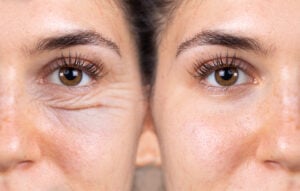Gene therapy is a technique that uses genes to treat or prevent disease. Most gene therapy is currently at the research stage, but there has been some success in treating blood disorders, immunodeficiency syndromes, and retinal disease. Several gene therapies targeting rare inherited diseases have been approved for use.
Genes are passed from parents to offspring and typically are involved in the formation of specific proteins in the body. A missing gene may mean that a patient is missing such a protein. Replacing the gene will restore the patient’s ability to create the protein. For example, sickle cell disease is caused by a mutation in one gene, which results in abnormal haemoglobin in red blood cells. Gene therapy seeks to correct this gene and re-insert it into bone marrow, where it can create healthy haemoglobin.
There are hundreds of companies working on different aspects of gene therapy. Here is a selection of some exciting players in this dynamic field.
Bluerock Therapeutics, Cambridge, Massachusetts, USA
A wholly owned subsidiary of Bayer AG, Bluerock seeks to control degenerative diseases using iPSC therapies. The research centre creates stem cells from adult tissue and can then use gene editing capabilities to program these cells to carry out specific functions. The goal is to use these cell therapies to replace damaged or degenerated tissue.
People living with Parkinson’s disease gradually lose dopamine-producing neurons in the brain. Bluerock has developed a technique to create new dopamine neurons. A two-year trial commenced in May 2022 to measure the effectiveness of these neurons when delivered to patients as transplants.
Alnylam Pharmaceuticals, Cambridge, Massachusetts, USA
Alnylam is one of the leading developers of RNA interference (RNAi) for the treatment of rare genetic diseases. This technique seeks to suppress the action of particular genes, typically to reduce the production of a particular protein. Scientists from the German Max Planck Institute for Biophysical Chemistry and investors originally founded the research centre. It has entered into long-term partnerships with several major companies, including GlaxoSmithKline, Sanofi Genzyme and Monsanto, to develop specific solutions or treatments. To date, four RNAi therapeutics have been approved for use in the USA, all of which were developed by Alnylam.
Spark Therapeutics, Philadelphia, USA
Spark Therapeutics is a gene therapy company founded in 2013 to find a treatment for rare diseases. The company uses a particular tool or vector, adeno-associated vector (AAV), to carry genetic material inside a cell.
Luxturna, a gene therapy that treats children and adults with a rare inherited eye disease that usually causes total blindness, was their first product to attain FDA approval in 2018.
In 2019 Spark was bought by Swiss-based pharmaceutical company Roche. As part of the Roche Group, the company is developing several gene therapies to target a suite of diseases, including Haemophilia A and B, and several central nervous system diseases. Two treatments for Haemophilia are now in Phase 3 trials.
GenSight Biologics, Paris, France
GenSight Biologics is focused on finding gene therapy to tackle degenerative diseases of the retina. It’s two most advanced projects target Retina Pigmentosa and Leher or LHON. In the latter condition, blurred vision usually starts in boys in their mid-teens, and sight deteriorates after that. It is caused by a known mutation in the DNA from the mother, which results in an important protein being formed incorrectly. The treatment involves using an AAV to repair the cell’s ability to produce this protein. Two Phase 3 trials for this product have been completed, and a third is underway.
Askepios BioPharmaceutical (AskBio), Research Triangle Park, North Carolina, USA
AskBio was founded in 2001 to build on the work of Dr Richard Jude Samulski, former Director of the University of North Carolina gene therapy centre and now Chief Scientific Officer of the company. Samulski and colleagues were the first to clone the Adeno-Associated Virus (AAV), which is the most widely used means to deliver gene therapy. AAV is a virus which cannot replicate on its own and does not generate a strong immune response in patients.
Research is focused on neuro-muscular disorders such as Muscular Dystrophy, respiratory conditions such as cystic fibrosis, and Central Nervous System genetic disorders such as Huntingdon’s and Parkinson’s disease. In 2020 the company became a wholly owned, independently operated subsidiary of Bayer AG.
Novartis Gene Therapies, Bannockburn Illinois, USA
AveXis began as a clinical research centre which developed a treatment for spinal muscular atrophy (SMA), the leading genetic cause of infant death. Zolgensma has been used to treat more than 2300 patients worldwide, making it the most widely used gene therapy.
In May 2018, AveXis was acquired by Novartis, and in 2020 it was rebranded to Novartis Gene Therapies. Novartis Gene Therapies seeks to expand the availability of Zolgensma and develop new treatments for rare and life-threatening neurological genetic diseases.
CRISPR Therapeutics, Zug, Switzerland
CRISPR Therapeutics was founded in 2013 as Inception Genomics by Emmanuelle Charpentier, Shaun Foy and Rodger Novak.
Charpentier, together with Jennifer Anne Doudna, had worked on deciphering the molecular mechanisms of a bacterial immune system called CRISPR/Cas9, and repurposing it into a tool for genome editing. For this work, they jointly received the 2020 Nobel Prize in Chemistry.
The CRISPR/Cas 9 system can be used to inactivate a gene, delete a gene, or even replace a gene. It is now widely used in the development of gene therapies by CRISPR Therapeutics and other companies. CRISPR is researching therapies in several areas, including diabetes, cancer and sickle cell disease.
Sangamo Therapeutics, Brisbane, California, USA
Sangamo uses Zinc Finger proteins (ZFs) to activate, repress or edit genes. The company has developed a proprietary library of thousands of ZFs, which it can use to develop therapeutics.
In addition to its programmes, Sangamo is working with Pfizer to develop gene therapies for haemophilia; with Biogen to target neuromuscular diseases including Parkinson’s and Alzheimer’s, and with Kite, a Gilead company, on cancer treatments.
Are you a company with an innovative healthcare story to share with a global audience? Click here to contact our communications team for potential coverage.














